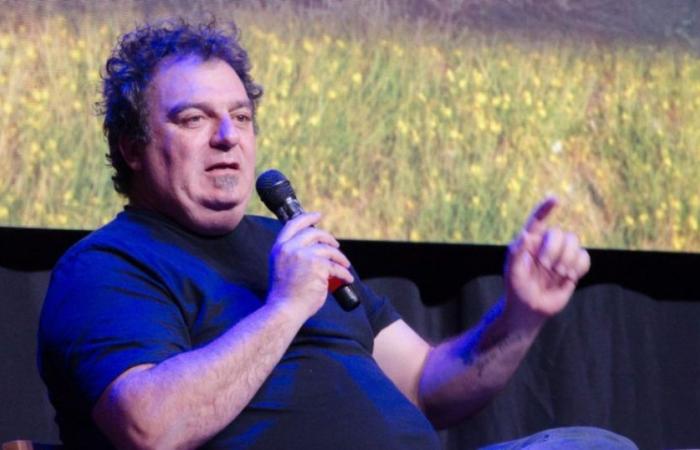Alejandro Vigil It met the expectations it had generated. The best winemaker in the country was this Thursday in the Convention Center in the cycle Let’s talk about what’s coming: Wine & Tourism. I speak simply and with a clear message: the importance of the place when making wine, its environment and its community. He was also forceful in stating that in wine tourism you have to work for the ABC1 public, which is the one who can pay the prices of premium wines while they are sightseeing. “These are the people who can travel the world and buy expensive bottles,” he said.
“They are the ones who generate consumption and provide you with the necessary resources to be able to solve your project. And they generate a brand. That is what we have to achieve. When we have a strong brand in the world, where people are willing to invest in a bottle of wine and promote it through all social networks. Nowadays it is very difficult to communicate, to understand new communication.
Vigil is director of Oenology at Catena Zapata and he also has Casa Vigil. That is to say, he is multifaceted but defines himself as a farmer and immediately recalls his origins: working in the fields.
At his presentation yesterday he was interviewed by wine journalist Fabricio Portelli. Instead of giving a presentation and explanation, he preferred to sit down and chat. This created a pleasant atmosphere, and the audience also participated with questions that they sent via a QR code on their cell phone.
At other points, he spoke to the wine merchants. He said that they should not miss the opportunity to sell their products at their doors.
“These are dollars that come in directly,” he summarized.
Through this much more direct mechanism, the large costs of distribution and points of sale are avoided.
He added that this creates a “word of mouth” that allows tourists to come to the place, live the experience, meet the wine makers, their customs and end up becoming an ambassador for the brand. Vigil He stressed that this works better than advertising on social networks.
“You have to get involved,” he emphasized and insisted on humanity as the centrality of winemaking activity. And all the cultural background that exists in an experience with wine.
To the people in the sector, he reminded them that the activity has been going on for many years, due to the time of the plantations, the wines that one looks for and the positioning. “You can even work for it and not see the results in life,” he said.
In another aspect, he stressed that we must seek to be sustainable, aim for sales in the region, and have an identity.
“When a person opens a bottle, they don’t expect the taste or the experience to change. You have to stick to the idea,” he said.
In his refined look at wine tourism, he focused on Cafayate and He said that, for example, it would be important to have better road infrastructure, which would allow tourists to get to Salta and be in Cafayate in an hour and a half or two. For this reason, he considered the State to be key, so that it has a strategic vision in supporting the private sector.
More experiences
He asked winemakers and wine tourism entrepreneurs to analyze alternatives to bring the experiences closer to tourists. In Cafayate, the wineries are very far apart. For this reason, he recommended getting together and making a circuit near the square.
“When a tourist goes to Mendoza, he knows he will visit wineries and do wine tastings,” he said.
“We have to make people fall in love with a place,” he said. He said that in Mendoza it is the second most important economic activity.
“When you re-create the experience, where the people involved are, they have the shirt and are part of the project, not an employee of the project, you win. That is the point. And we have a lot, as Argentines, our closeness, our way to be, our interpretation of life, friends, barbecue, wine, to do it well. In other places it is not so easy. I make wine in Spain. People live separately. They greet each other in a restaurant. They share a table with us. They involve us with each other,” he commented to an audience that was following him attentively.
“We do get involved. We want to know about each other. We open bottles, we chat. It is essential to become human. I buy that. And I pay for that,” he reflected.
“I always say that I like to make wine from places. Why? Because the variety is not as important as the place. When that happens it is fundamental. When the food is not the chef, but the ingredients we are using, it happens The place where those ingredients come from is more important than the person who cooks it. Well, it happens to me with wine. I want the place to be more important than the variety.
When asked about gastronomy and wine tourism, he responded: “When you think about it, wines, with respect to what we eat, are very close. And that is why we cannot separate them. So I think that the only thing we have to do with gastronomy now “It’s going to go deeper into what we know about it to give it another plus. But I think so. I think I’m more than clear about it. I would use a lot more spoon here today.






